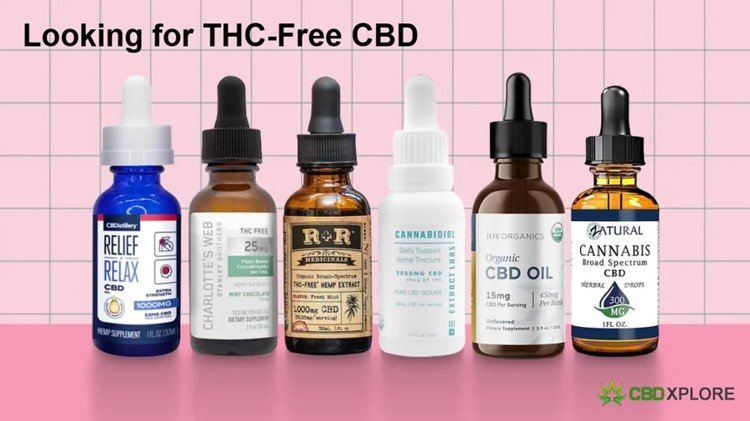MCT Oil vs Hemp Oil in CBD: What’s the Difference?

When shopping for CBD products, you may have come across terms like MCT oil vs hemp oil on product labels. These oils are commonly used as carrier oils to deliver CBD effectively into your system. However, many consumers find themselves puzzled when trying to choose between the two. Understanding the differences between MCT oil vs hemp oil is crucial for making an informed decision about which CBD product is right for you.
In this guide, we’ll break down everything you need to know about MCT oil vs hemp oil in CBD products, including their nutritional profiles, absorption rates, health benefits, and how they affect the overall CBD experience. Let’s dive in!
Explore the Contents
- 1 What Are Carrier Oils in CBD Products?
- 2 What is MCT Oil?
- 3 What is Hemp Seed Oil?
- 4 MCT Oil vs Hemp Oil: Key Differences in CBD Products
- 5 Which One Should You Choose: MCT Oil or Hemp Oil?
- 6 How Does Carrier Oil Affect CBD Potency?
- 7 Popular CBD Products Using MCT Oil vs Hemp Oil
- 8 Final Thoughts on MCT Oil vs Hemp Oil in CBD
What Are Carrier Oils in CBD Products?
Before we delve into the MCT oil vs hemp oil debate, it’s important to understand what carrier oils are and why they matter in CBD products.
Carrier oils are used to dilute CBD extract and “carry” it into the body more effectively. Since CBD is fat-soluble, combining it with oil allows for better absorption into the bloodstream. Without a carrier oil, your body would struggle to utilize CBD efficiently.
The two most popular carrier oils you’ll encounter are MCT oil and hemp seed oil, each offering unique characteristics that can influence the effects of your CBD product.
What is MCT Oil?
MCT oil stands for Medium-Chain Triglyceride oil, which is typically derived from coconut oil or palm kernel oil. The “medium-chain” refers to the length of the fatty acid chains within the oil, which are shorter than those found in long-chain triglycerides (LCTs) like olive oil or canola oil.
Nutritional Profile of MCT Oil
-
High in saturated fats: MCT oil is rich in medium-chain fatty acids such as caprylic acid (C8) and capric acid (C10).
-
Zero carbs and proteins: Pure MCT oil contains only fats and no carbohydrates or proteins.
-
Highly refined: MCT oil is processed to remove unwanted compounds, resulting in a clear, flavorless oil.
Health Benefits of MCT Oil
-
Enhanced bioavailability of CBD: One of the key reasons MCT oil is used in CBD tinctures is its ability to improve the bioavailability of CBD. Medium-chain triglycerides are rapidly broken down by the liver, allowing CBD to enter the bloodstream more quickly.
-
Energy boost: MCTs are metabolized into ketones, which provide a quick and sustained energy source, especially for those following ketogenic diets.
-
Supports weight management: MCT oil has been linked to increased feelings of fullness and may aid in weight loss by promoting fat oxidation.
-
Brain support: MCTs are believed to support cognitive function and mental clarity by providing an alternative energy source to glucose.
What is Hemp Seed Oil?
Hemp seed oil is extracted by cold-pressing the seeds of the hemp plant (Cannabis sativa). Unlike CBD oil, hemp seed oil contains little to no cannabinoids but is packed with essential nutrients.
Nutritional Profile of Hemp Seed Oil
-
Rich in omega fatty acids: Hemp seed oil is known for its ideal 3:1 ratio of omega-6 to omega-3 fatty acids.
-
High in vitamins and minerals: It contains Vitamin E, magnesium, calcium, iron, and zinc.
-
Contains plant-based proteins: Hemp seed oil has small amounts of plant proteins and fiber.
Health Benefits of Hemp Seed Oil
-
Promotes heart health: The omega fatty acids in hemp oil can help lower cholesterol levels and reduce the risk of heart disease.
-
Skin nourishment: Hemp seed oil is a popular ingredient in skincare due to its moisturizing and anti-inflammatory properties.
-
Immune system support: The nutrients in hemp seed oil, such as zinc and magnesium, can help strengthen the immune system.
-
Hormonal balance: Gamma-linolenic acid (GLA) in hemp oil may help regulate hormones, especially in women.
MCT Oil vs Hemp Oil: Key Differences in CBD Products
Now that we’ve covered their individual benefits, let’s compare MCT oil vs hemp oil across essential factors that influence CBD products.
1. Bioavailability
-
MCT Oil: Offers superior bioavailability due to its rapid digestion in the liver, allowing CBD to reach the bloodstream faster.
-
Hemp Oil: Bioavailability is slightly lower, as long-chain fats take longer to metabolize.
Takeaway: If fast absorption is a priority, MCT oil-based CBD tinctures may be more effective.
2. Taste and Texture
-
MCT Oil: Neutral, flavorless, and thin in consistency, making it ideal for sublingual CBD drops.
-
Hemp Oil: Has a nutty, earthy taste with a thicker texture, which some people may find robust.
Takeaway: For a neutral taste and smoother texture, MCT oil is preferable, especially for first-time users.
3. Nutritional Content
-
MCT Oil: Primarily focused on fat content with minimal nutrients outside of medium-chain triglycerides.
-
Hemp Oil: Offers a nutrient-rich profile with essential fatty acids, vitamins, and minerals.
Takeaway: Hemp seed oil provides additional nutritional value beyond serving as a carrier for CBD.
4. Target Users
-
MCT Oil: Popular among athletes, keto-diet followers, and those seeking cognitive or metabolic support.
-
Hemp Oil: Appeals to those looking for a holistic wellness boost, including skin health and heart support.
5. Shelf Life
-
MCT Oil: Has a longer shelf life due to its high stability and resistance to oxidation.
-
Hemp Oil: More prone to oxidation and requires refrigeration after opening to maintain freshness.
Takeaway: MCT oil offers better longevity in CBD formulations.
Which One Should You Choose: MCT Oil or Hemp Oil?
When it comes to choosing between MCT oil vs hemp oil in CBD, your decision should depend on your wellness goals and personal preferences.
-
Choose MCT oil if you want faster CBD absorption, are following a keto lifestyle, or prefer a tasteless oil for easy ingestion.
-
Opt for hemp seed oil if you desire a nutrient-dense oil that complements your heart and skin health.
Some CBD manufacturers even blend both oils to create a balanced product that offers fast absorption with added nutritional benefits.
How Does Carrier Oil Affect CBD Potency?
It’s important to clarify that MCT oil vs hemp oil doesn’t affect the potency of CBD itself, but rather how efficiently your body can absorb and use it. A CBD product with MCT oil may deliver more CBD into your bloodstream quickly, while hemp oil may offer slower but steady absorption along with extra nutrients.
Popular CBD Products Using MCT Oil vs Hemp Oil
CBD with MCT Oil:
-
CBD tinctures and oils
-
CBD capsules
-
CBD energy supplements
-
CBD sprays
CBD with Hemp Seed Oil:
-
CBD topicals (lotions, balms, creams)
-
CBD nutritional blends
-
CBD skincare products
-
Full-spectrum CBD oils
Final Thoughts on MCT Oil vs Hemp Oil in CBD
Both MCT oil and hemp seed oil play vital roles in the formulation of CBD products, but they serve distinct purposes. While MCT oil is renowned for enhancing bioavailability and providing quick energy, hemp seed oil brings an array of nutrients and supports overall wellness.
When evaluating MCT oil vs hemp oil, consider factors such as your health objectives, taste preferences, and how you plan to use CBD. Some consumers even rotate between both types depending on their needs—using MCT oil-based tinctures during the day for energy and hemp oil-infused products for skin or nighttime wellness.
Ultimately, both oils are excellent choices for delivering CBD to your body, and the right one for you will depend on your unique lifestyle and wellness journey.





